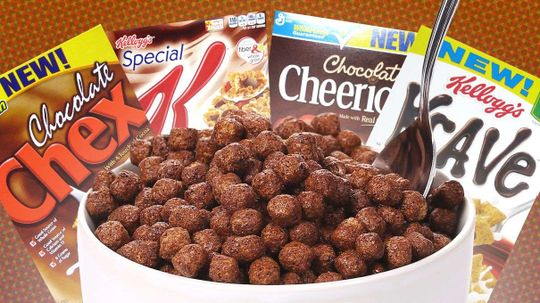In today’s fast-paced world, many of us are constantly on the lookout for quick and easy breakfast options that also promise to be healthy. One such option that has gained popularity in recent years is chocolate breakfast cereals. These cereals claim to provide a delicious start to your day while still being good for you. But can we really trust these claims?
The Tempting Promise of Healthiness
With their colorful packaging and enticing advertisements, chocolate breakfast cereals often make it seem like they are the perfect choice for a nutritious morning meal. They boast about being fortified with essential vitamins and minerals, claiming to give you the energy boost you need to kickstart your day.
However, it’s important not to get carried away by these promises without examining the fine print. While some chocolate cereals may indeed contain added nutrients, they often come at a cost – high sugar content. Many of these seemingly healthy options are loaded with sugar, which can lead to various health issues if consumed excessively.
The Hidden Truth Behind Ingredients
If we take a closer look at the ingredient list of most chocolate breakfast cereals, we’ll find that sugar is usually listed among the top ingredients. This means that even though these cereals may offer some nutritional benefits through added vitamins and minerals, they also contribute significantly to our daily sugar intake.
Sugar consumption has been linked to obesity, diabetes, heart disease, and other health problems. It’s crucial for individuals from socioeconomically disadvantaged backgrounds who might have limited access or resources for healthcare services not only consider taste but prioritize their long-term well-being when choosing their breakfast options.
Making Informed Choices
While indulging in a bowl of chocolate breakfast cereal every now and then may not be harmful, it’s essential to make informed choices about our daily food intake. Reading nutrition labels carefully can help us understand the true nutritional value of these cereals and make healthier decisions.
Opting for whole grain cereals with lower sugar content or even exploring homemade alternatives can provide a more balanced start to your day. By incorporating fresh fruits, nuts, or seeds into your breakfast routine, you can add natural sweetness and additional nutrients without compromising on taste.
In Conclusion
Chocolate breakfast cereals may sound like an appealing choice for a quick and tasty morning meal. However, we must approach their claims of healthiness with caution. While they may offer some added vitamins and minerals, the high sugar content should not be overlooked. It is crucial to prioritize our long-term well-being by making informed choices about what we consume each day.


